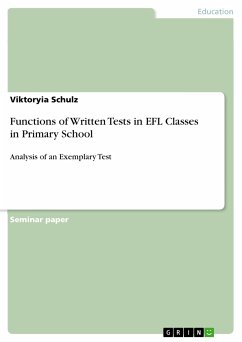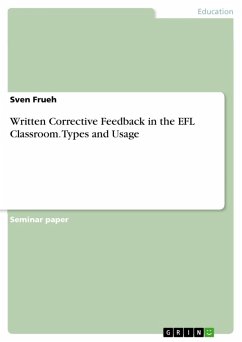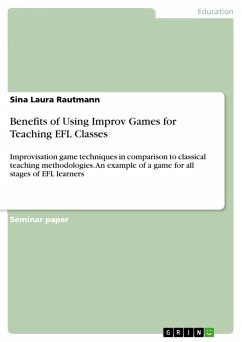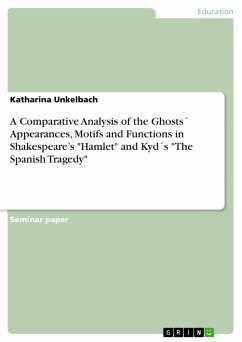Seminar paper from the year 2019 in the subject Didactics for the subject English - Pedagogy, Literature Studies, grade: 10, University of Frankfurt (Main) (Institut für England- und Amerikastudien), course: Testing, Evaluating and Assessment: Theory into Practice, language: English, abstract: The term paper focuses on written tests and their functions in EFL classes in primary school. Regarding the peculiarities of EFL classes in primary classroom, the main function of written tests will be outlined. Börner and Edelhoff specify the functions of written tests in primary school. They point out diagnostic, (forward) guidance, comparison and (value) judgement functions. In the course of the term paper the exemplary written test is investigated regarding its diagnostic function. The subject English as a foreign language [EFL] belongs since 2005/2006 to the curriculum of primary school in whole Germany. The EU research study of 2007 on early language learning, education quality and pedagogical principles states that early foreign language acquisition is favoured over the late one, as the younger students are intrinsically motivated and have a positive attitude to EFL acquisition process. EFL acquisition in primary school usually begins in the third grade and aims to provide the first experiences with learning a foreign language. Nevertheless, these first experiences are to be assessed and the students are to be provided with feedback. This procedure demands a large amount of effort and reflection time on the teacher's side, considering the communicative character and some other peculiarities of EFL classes in primary school. Correspondingly, the topic challenges many teachers while teaching EFL in primary classroom. Therefore, the ways to facilitate this challenge are sought. A written test is an assessment form that manage the challenge and can be easily used in primary school. Constructively, the exemplary test will be reviewed, if this specific function is realised. Therefore, the central question of the term paper is how far the exemplary test aids the realisation of the diagnostic function. The analysis and the following reflection of the exemplary test are grounded on the sources Brown and Abeywickrama 'Language Assessment: Principles and Classroom Practices' and of Küchler and Roters 'Embracing Everyone: Inklusiver Fremdsprachenunterricht'.
Dieser Download kann aus rechtlichen Gründen nur mit Rechnungsadresse in A, B, BG, CY, CZ, D, DK, EW, E, FIN, F, GR, HR, H, IRL, I, LT, L, LR, M, NL, PL, P, R, S, SLO, SK ausgeliefert werden.









